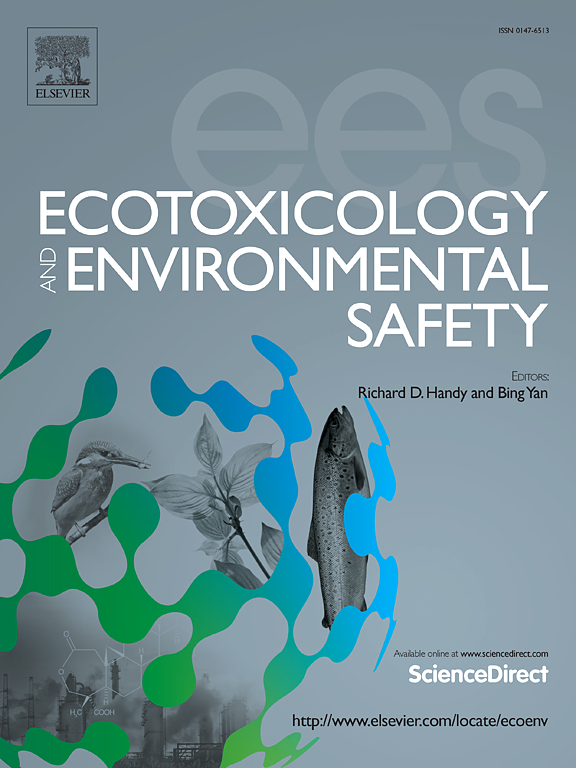Chlorophenols in environment: Recent updates on pretreatment and analysis methods
IF 6.2
2区 环境科学与生态学
Q1 ENVIRONMENTAL SCIENCES
引用次数: 0
Abstract
Chlorophenols (CPs) are widely used in industries such as petrochemicals, insecticides, pharmaceuticals, synthetic dyes and wood preservatives. However, owing to the improper discharge and disposal, they have become major contaminants that are ubiquitously distributed in water, soil, and sewage sediments, posing a significant threat to ecosystems and human health. Consequently, accurate, sensitive and effective pretreatment and analysis methods for CPs are urgently required and have been actively explored in recent years. This review encompasses the pretreatment and detection methods for CPs in environmental samples from 2010 to 2024. The pretreatment methods for CPs primarily include solid-phase extraction, liquid-liquid extraction, solid-phase microextraction, liquid-phase microextraction, and QuEChERS. These methods are evolving towards more effective and environmentally friendly technologies, such as the miniaturization and automation of equipment, the development of innovative materials (including graphene, molecularly imprinted polymers, layered double hydroxides, porous organic polymers, and porous carbon), and the use of green solvents like deep eutectic solvents. Detection methods emphasize liquid chromatography-mass spectrometry, gas chromatography-mass spectrometry, sensors, and capillary electrophoresis. Advances in chromatographic columns, novel ion sources, and high-resolution mass spectrometry have significantly improved detection performance. In addition, the pros and cons of diverse techniques, critical comments and future perspectives are elaborated.
环境中的氯酚:预处理和分析方法的最新进展。
氯酚(CPs)广泛应用于石油化工、杀虫剂、制药、合成染料和木材防腐剂等行业。然而,由于排放和处理不当,它们已成为主要污染物,广泛分布于水、土壤和污水沉积物中,对生态系统和人类健康构成严重威胁。因此,准确、灵敏、有效的氯化石蜡预处理和分析方法已成为当务之急,近年来人们一直在积极探索这种方法。本综述涵盖了 2010 年至 2024 年环境样本中氯化石蜡的预处理和检测方法。氯化石蜡的预处理方法主要包括固相萃取、液液萃取、固相微萃取、液相微萃取和 QuEChERS。这些方法正朝着更有效、更环保的技术方向发展,例如设备的微型化和自动化、创新材料的开发(包括石墨烯、分子印迹聚合物、层状双氢氧化物、多孔有机聚合物和多孔碳)以及绿色溶剂(如深共晶溶剂)的使用。检测方法主要包括液相色谱-质谱法、气相色谱-质谱法、传感器和毛细管电泳。色谱柱、新型离子源和高分辨率质谱技术的进步大大提高了检测性能。此外,还阐述了各种技术的优缺点、批评意见和未来展望。
本文章由计算机程序翻译,如有差异,请以英文原文为准。
求助全文
约1分钟内获得全文
求助全文
来源期刊
CiteScore
12.10
自引率
5.90%
发文量
1234
审稿时长
88 days
期刊介绍:
Ecotoxicology and Environmental Safety is a multi-disciplinary journal that focuses on understanding the exposure and effects of environmental contamination on organisms including human health. The scope of the journal covers three main themes. The topics within these themes, indicated below, include (but are not limited to) the following: Ecotoxicology、Environmental Chemistry、Environmental Safety etc.

 求助内容:
求助内容: 应助结果提醒方式:
应助结果提醒方式:


